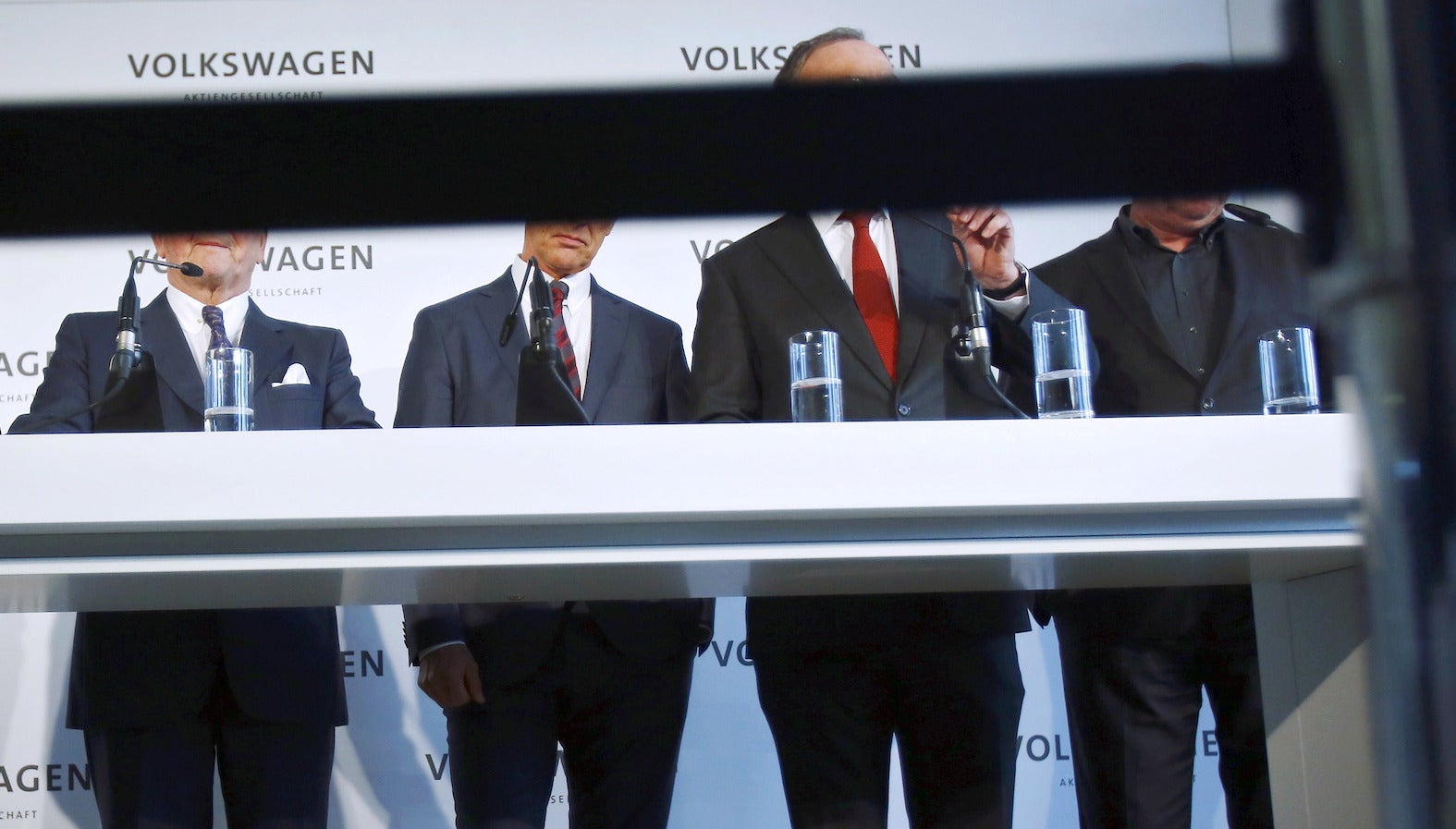Volkswagen’s emissions scandal is just one piece of a larger betrayal by automakers
Seven months ago, when Volkswagen admitted to fixing 11 million diesel vehicles to cheat emissions tests, some suspected this was not an isolated case but rather an example of more widespread malfeasance, on par with the rate-rigging scandals that had engulfed the world’s big banks. Was this the car industry’s “Libor moment”?


Seven months ago, when Volkswagen admitted to fixing 11 million diesel vehicles to cheat emissions tests, some suspected this was not an isolated case but rather an example of more widespread malfeasance, on par with the rate-rigging scandals that had engulfed the world’s big banks. Was this the car industry’s “Libor moment”?
So it now seems. This week Mitsubishi fessed up to cheating on emissions as well. French authorities raided Peugeot Citroen’s offices. Germany’s Daimler acknowledged that US regulators have the company in their sights. A UK government testing program reported that no other manufacturers besides VW had rigged their vehicles, but that all of their cars had higher emissions of nitrogen oxides (NOx) in real life than on the test track. There were calls in Australia for the government to adopt independent testing.
VW revealed that the scandal cost it at least €16.2 billion ($18.2 billion) last year. But that’s just on paper. The real cost of the scandal is the extra pollutants that drivers have been unwittingly pumping into the atmosphere.
That’s especially bitter to contemplate in light of two other events this week: the signing of the COP21 emissions-reduction deal, agreed to in Paris last December, and the release of data showing that 2016, month for month, continues to be the hottest year on record. COP21 was already looking inadequate to slow global warming to safe levels. It’s worse still if we can’t even trust the data on the pollutants we’re emitting.
With any luck, the betrayal by the automakers will prompt enough consumers to agitate for change. It’s not much of a silver lining, but in a grim week for the planet all round, it’s worth grasping at.
Correction: An earlier version of this story mistakenly said that cars were emitting higher-than-suspected levels of carbon, when in fact it was nitrogen oxides.
This was published as part of the Quartz Weekend Brief. Sign up for our newsletters here, tailored for morning delivery in Asia, Europe & Africa, and the Americas.